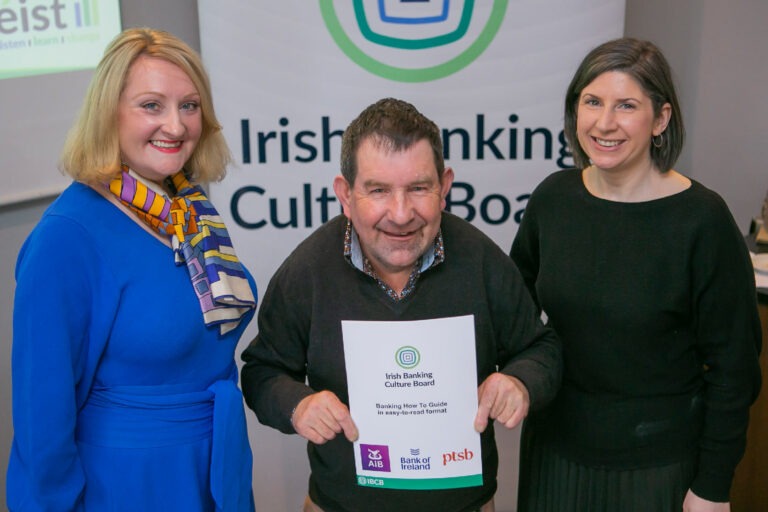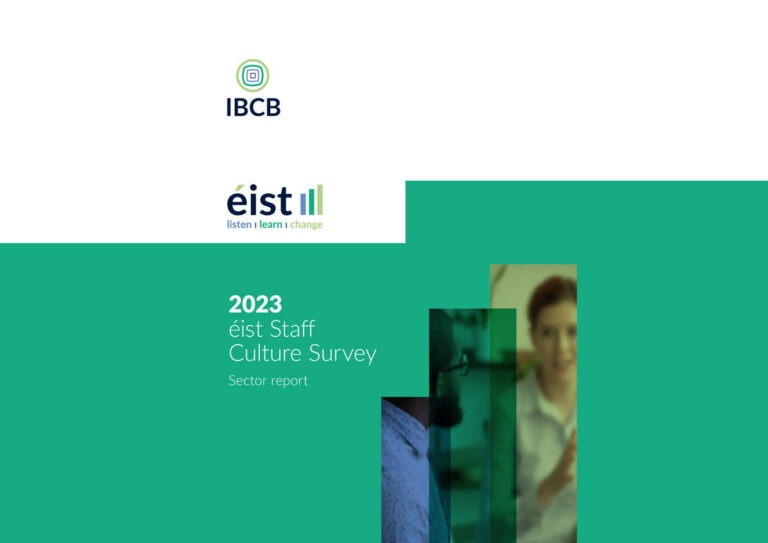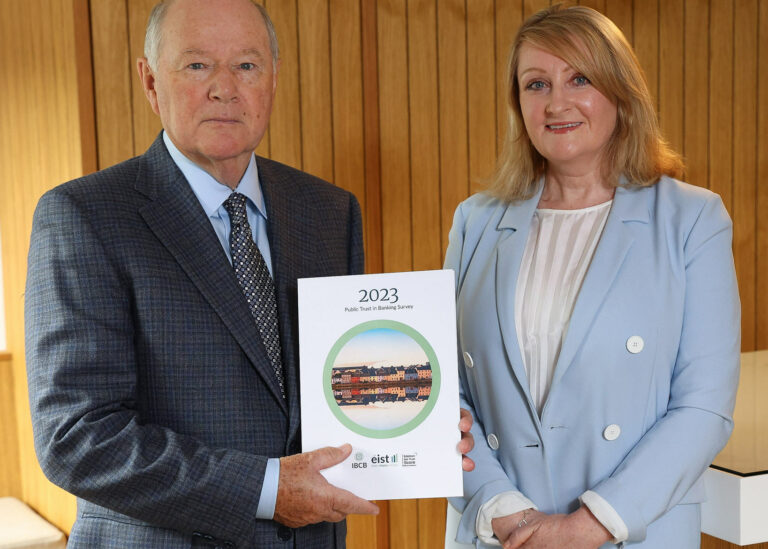The Irish Banking Culture Board publishes its 2022 – 2023 annual report
The Irish Banking Culture Board (IBCB) today published its annual report for 2022 – 23, outlining the work it has undertaken during an eventful 12-month period where the retail banking sector continued to undergo significant change. The report highlights the key projects and partnerships that the IBCB has engaged with in the last year, in the implementation of its work programme.
Speaking about the Report, IBCB CEO, Marion Kelly, stated: “The work of the Irish Banking Culture Board over the last twelve months has been carried out against a backdrop of significant change in the sector and in an economy dominated by a surge in the cost of living. As facilitators of cultural change, and in our work with our member banks to rebuild trustworthiness with the public, we have retained our focus on protecting the interests of customers and staff. Regardless of how the financial landscape evolves, a robust and trusted banking sector is essential to the future prosperity of Ireland. Equally, it is crucial that good culture, ethical behaviour and the interests of customers and staff remain central to the decision-making process in the banking and financial sector. Progress is clearly being made. The challenge now, moving into the next three-year period for the Board, is to continue that progress in rebuilding trust in the sector.”
Commenting on the report, IBCB Chairman, John Hedigan, stated: “Last year saw the conclusion of the Central Bank of Ireland’s Tracker Mortgage Examinations, the issue that prompted the establishment of the Irish Banking Culture Board. As we stated at the time, the IBCB stands with the thousands of bank customers who have been impacted financially and emotionally by this scandal. As a Board we have learned much from our engagement with customers and staff. Their insights have been essential to framing our work programme and helping to highlight the issues that continue to require our focus. It is important that the efforts of the banks and the progress they are making in rebuilding trust is acknowledged. The improvement in public trust in the sector, as captured in the latest iteration of IBCB’s éist research, is encouraging and an indication that if a focus on good culture is maintained, progress will inevitably follow.”
The work programme of the IBCB has, throughout the reporting period and as with previous years, centred on customers and staff. As the impact of the departure of both Ulster Bank and KBC Bank Ireland became a reality it gave rise to an enormous level of account switching activity. The IBCB’s focus during this period was on the way its member banks managed this unprecedented level of activity, insisting to our member banks that staff be properly resourced and supported, that communications with customers be fair and transparent, and that customers in a vulnerable position receive every necessary support in the account switching process. The éist Public Trust in Banking survey, carried out in Q1 of 2023, supported the view that the process was managed well by the sector.
Measurement remains a key driver of the IBCB agenda and the éist surveys, on Public Trust in Banking and Staff Culture, in their third year, showed evidence of positivity towards and increased trust in the sector. While the banking sector continues to evolve, the slow recovery of public trust, driven by the trust drivers of purpose, ability, and competence, has improved by 10 points compared to 2022. The Staff Culture Survey also showed positive progress across several key cultural indicators, with 86% of staff considering that their bank does business ethically and a further 76% stating that they believed their bank’s stated values and how they did business were aligned.
A challenging finding from the previous IBCB Staff Culture Report was the lack of pride in their job amongst staff across the sector. The additional research the IBCB carried out to interrogate the issue proved hugely insightful and revealed that there were key drivers for staff that informed their feelings of organisational pride or otherwise in their work. These included the necessity for executives to communicate a vision for the future that motivates people and staff’s belief that customers should be put at the centre of the decision-making process.
Forging purpose driven partnerships remains a cornerstone of the work undertaken by the IBCB. Throughout the last twelve months, the Board worked closely with SAFE Ireland and TASC (Think Tank for Action on Social Change) to provide financial resilience training to specialist domestic violence support workers. The collaboration helps to empower survivors of domestic abuse by providing them with the financial autonomy to which they are entitled, and which is so often denied to them, by their abuser.
This year, the IBCB, as part of its customer listening process and in collaboration with Inclusion Ireland, conducted a series of listening sessions with people with Intellectual Disabilities (ID). The insightful sessions provided feedback on making banking more accessible, which is being progressed with member banks. The IBCB also further advanced the Common Commitment of Care, an initiative launched in 2019 with its member banks, in support of bereaved customers. This initiative provides dedicated support access for bereaved customers at a fraught time in their lives. In an important endorsement of the efficacy of the IBCB’s Common Commitment of Care Guide, it was awarded the NALA (National Adult Literacy Agency) “Plain English” mark.
The IBCB is proud of its continued support for the Women in Finance Charter, which encourages increased participation by women in all levels of the financial services sector.
The IBCB previously developed and launched an ethical decision-making framework called DECiDE, to complement the existing processes already being deployed by our member banks. This year, the IBCB further developed tools and resources for the DECiDE Framework, which are now hosted on a dedicated ethics page on its website. These include a series of videos designed to identify key considerations in decision-making, hypothetical scenarios and an interactive resource called “How to think differently” covering issues such as Present Bias.
To review the full annual report online, visit our Annual Report microsite.
The publication is also available to download as a PDF.





